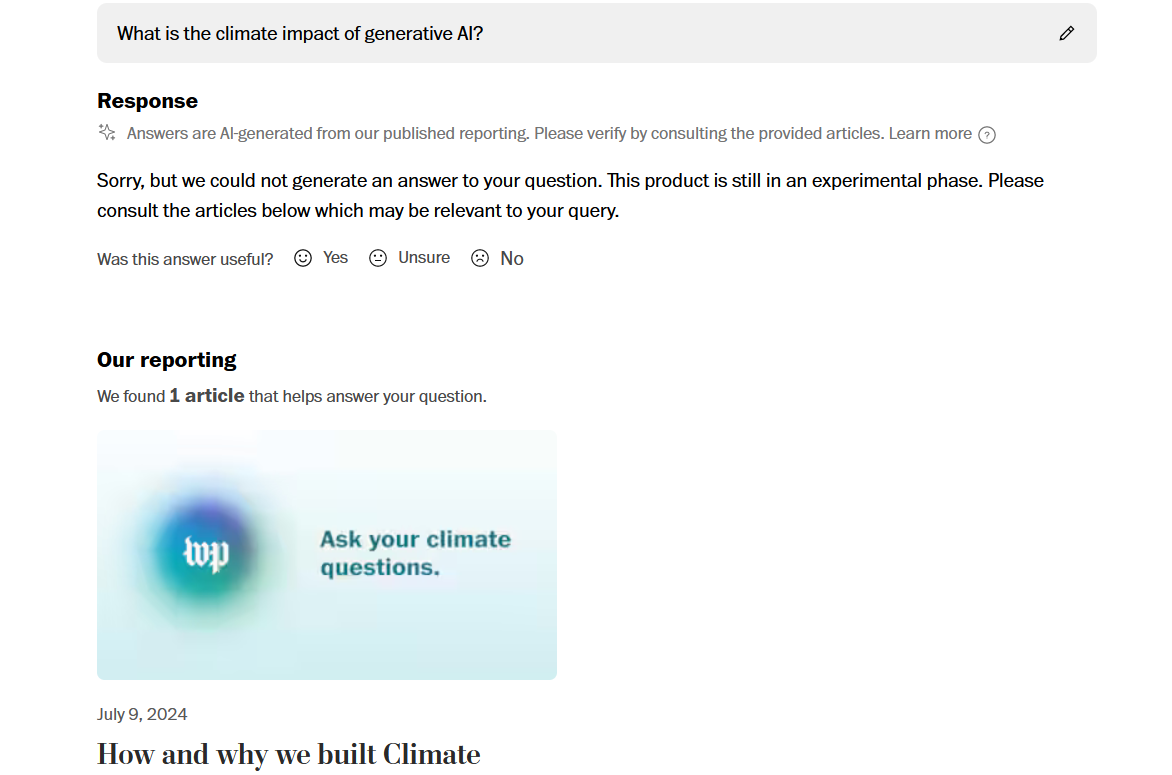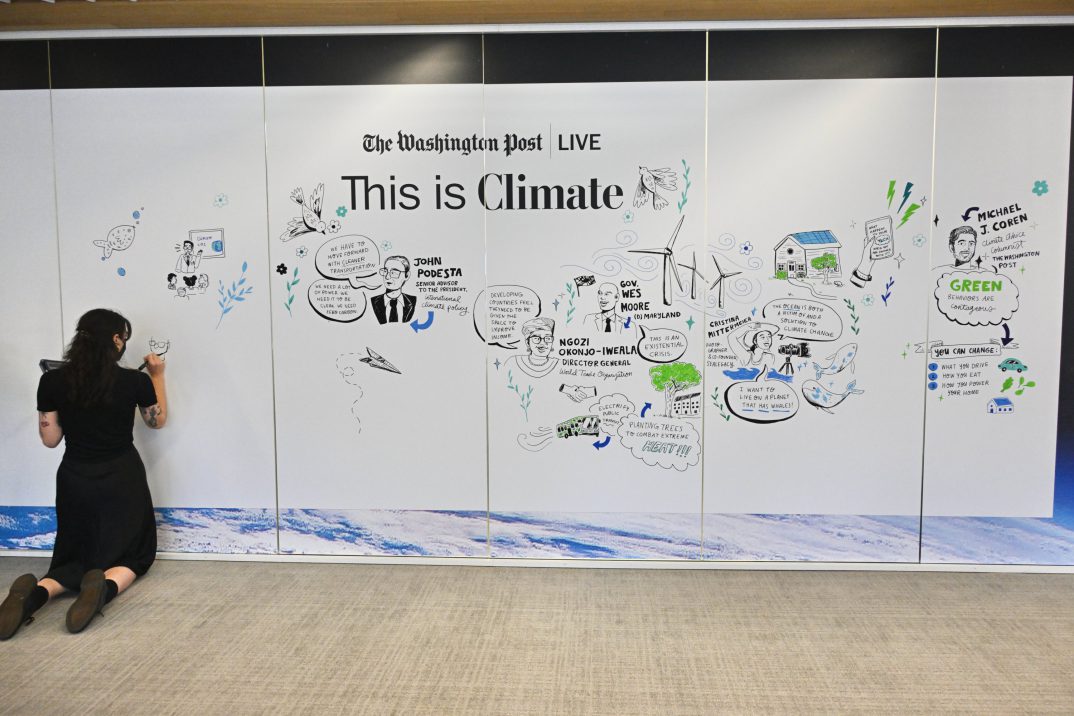The generative AI craze has officially arrived at a newsroom near you. On Tuesday, the Washington Post launched an AI chatbot called Climate Answers, designed to address reader questions about climate change.
“This experiment leverages artificial intelligence to help our users discover and explore our authoritative climate reporting,” a press release from the Post read. “Users’ questions are answered directly from articles published by The Washington Post since 2016 that are in the Climate & Environment and Weather sections.”
But could the chatbot itself hurt the climate? Goldman Sachs and Bloomberg project the rise of generative AI will cause an exponential growth in energy demand, given that AI computation requires more data use than your traditional internet search.
Shaloei Ren, an electrical and computer engineering professor at the University of California, Riverside who researches AI energy use, told Washingtonian that average inquiries on Climate Answers would likely cause a fraction of the environmental impact of ChatGPT.
Since Climate Answers is trained primarily on Post articles—as opposed to basically the entire Internet—and isn’t generating images or solving math equations, it would require less computation than ChatGPT or its generalized counterparts.
“If you focus on a smaller amount of data for training…there’s no need for a model with 100 billion parameters,” Ren said. “Presumably, it should be much smaller, and much less energy consuming.”
While Ren said he thought Climate Answers could be a useful tool, he also cautioned that most potential environmental harm caused by generative AI would not be from user inputs themselves, but the supply chain needed to make AI possible: mining for minerals for the specialized data chips that AI requires, the construction of additional data centers—like those in Loudoun County—to account for the greater data processing needs, and water for cooling the heat-intensive servers.
Ren pointed to companies such as Microsoft and Google, which both reported increased emissions levels in recent months due to the increased demand of AI. The majority of that increase, he said, can be attributed to those supply chain issues. “To generate the energy needed, we need water, we need coal, and when you generate it, we emit carbon,” he said.
While the Post isn’t likely to match the emissions of the tech giants anytime soon, new CEO Will Lewis has made AI a centerpiece of his plan to revitalize the newspaper, with the press release heralding the arrival of Climate Answers as one of the “initial steps…to infuse AI across the most relevant areas of our work.”
Just to be safe, we asked Climate Answers itself, “What is the climate impact of generative AI?”

“Sorry, but we could not generate an answer to your question. This product is still in an experimental phase. Please consult the articles below which may be relevant to your query,” the chatbot responded, linking us to an article about why the Post created Climate Answers.




